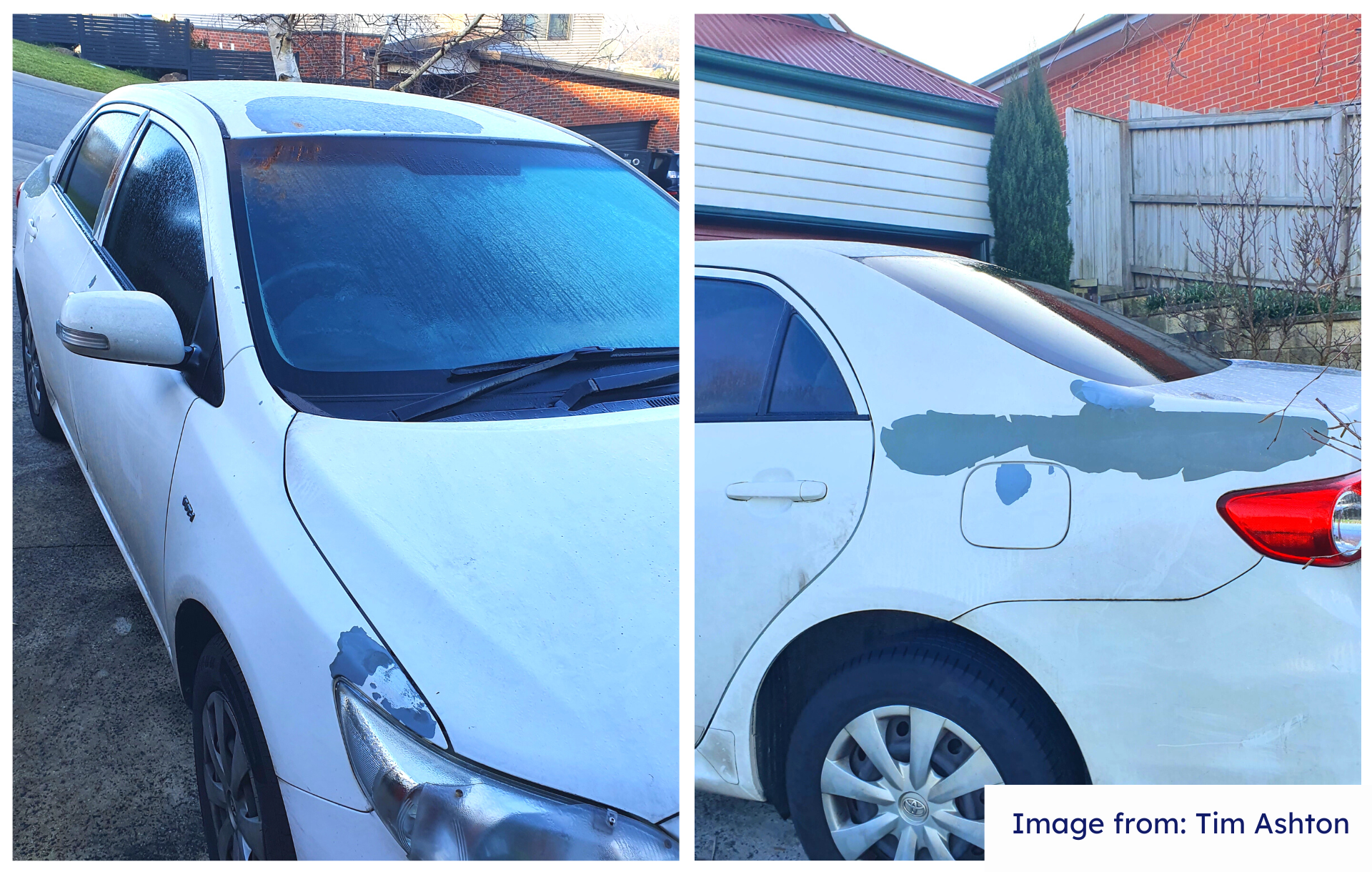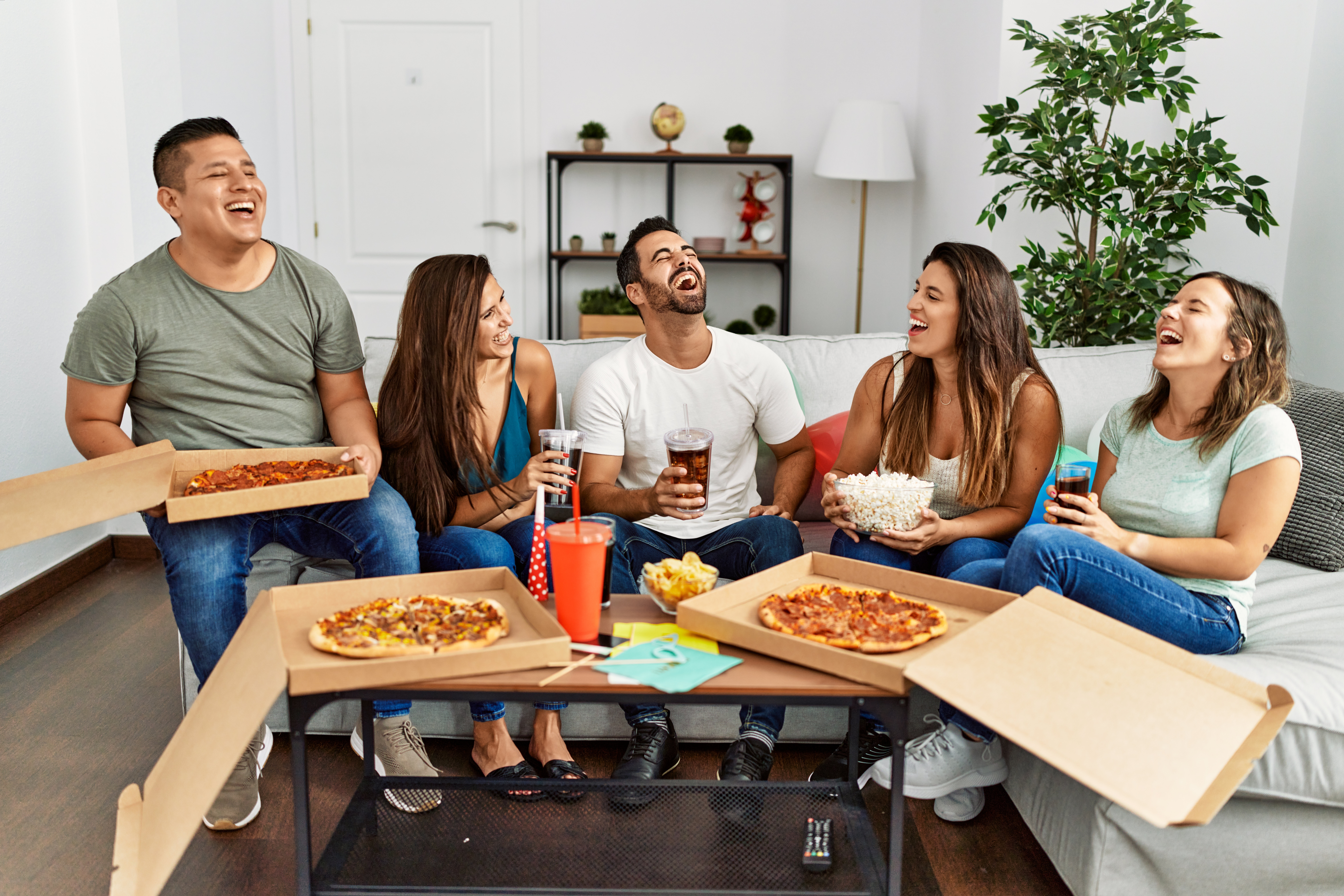Toyota paint peel proves power in numbers
When paint started peeling off his Toyota Corolla in great chunks, Chris McInerney thought maybe he had done something wrong.
Road danger: Hyundai owners warn of car failures while driving
Mandie Cowley was driving with her daughter on a busy regional highway in Victoria when her Hyundai started losing power.
“The only place I could pull over was on a bend and there was a lot of trucks. I was absolutely petrified that a truck was going to come up behind me and hit the car,” she said.
Michael Steele’s son, still a P-plater, was driving his Dad’s car at a similar high speed on a country highway in Queensland when it made a grinding sound.
"And it just came to a halt, nothing was working. He was very lucky to get it to the side of the road,” Michael said.
Nina Persin’s partner was driving at 100kmh on the Pacific Motorway, in south-east Queensland, roads still slippery from the floods, when his engine seized up.
“There was no warning light, nothing,” she said. “When the engine seized, the brakes stopped working, as did the steering wheel. My partner had huge difficulties steering the car away from the right-hand lane, avoiding the trucks on the road, towards the left lane.
“I don’t even want to imagine what could have happened."
Pay dirt: The battle for your digital dollars
The digital world has transformed the way we live, work and play. Transactions that used to take place in cash or with paper cheques are now completed online, using digital payment platforms.
In Australia, there are a number of different digital payment platforms available, each vying for a share of the market. In 2021, the industry processed about 55 million payments. That is worth about $650 billion each day, according to The Australian Financial Review. But behind this progress are growing concerns not only from banking institutions but governments.
The right direction: How to get the best car loan
We love our cars. In fact, the number of registered vehicles in 2021 was almost as many as the country’s total population. But it's no secret that buying a car is a costly exercise.
In fact, the cost of a new car has risen by an average of 7.4 percent in the past year, according to the latest figures.
Add car insurance, registration and general running costs, and it's easy to see why many people opt for a loan when buying a new set of wheels. But with so many lenders in the market, how do you find the best car loan for your needs?
Digital platforms: The complaints nightmare
In January this year, thousands of Crypto.com users were locked out of their accounts when the digital platform was forced to change security settings after it was hacked. To add insult to injury, support channels were not working and all users were told by the platform’s CEO was that "you could be using the wrong email address" — via a Tweet.
Chances are you have experienced something similar. New research has found that almost three-quarters of Australians are dissatisfied with how complaints are being handled on digital platforms.
Hunger games: Does food delivery really deliver the goods?
If you grew up in Brisbane in the late 1970s, you might remember a yellow van with a giant red telephone on top. The distinctive Silvio’s Dial-a-Pizza was a pioneer in the food delivery industry. Bringing pizza to our doors long before the household names of today.
Seven years later, Suppertime launched the first courier service for higher-end restaurants in Sydney. It eventually expanded into Melbourne in 2015.
It’s safe to say neither of these pioneers could have predicted just how big the food delivery service would become in Australia. It is now an $850 million industry that is predicted to grow into a multi-billion dollar industry from 2025.
Shocking power prices? Make money off your electricity
Power bills are on the rise again but don’t despair. There are ways you can not only save money on electricity but actually make some.
The Victorian Government has just announced that it will give consumers $250 to use its energy comparison site. It is basically incentivising you to take a closer look at your electricity bill.
Second best: Are used cars still worth your money?
If you've been shopping for a secondhand car recently, you've likely noticed they're still not cheap, especially if you want to avoid ending up with a lemon.
The pandemic caused production delays and a shortage of new cars, driving up demand for the next-best option. While prices for used cars have come down somewhat, they are still higher than pre-Covid levels.
According to the Moody’s Analytics' price index, the average used car now costs 20 percent less than its peak in May 2022 but is still 40 percent higher than pre-pandemic levels.
Sure thing: Are new car warranties a safe bet?
For many of us, cars are our second most expensive investment after our home. So it's only right to want some peace of mind when it comes to buying one.
Enter: the car warranty. In Australia, most new cars come with a manufacturer's warranty. That warranty covers you for a set period of time, usually three years. But in recent times, we've seen an increase in the number of brands offering longer warranties. Up to 10 years in some cases. It's a persuasive marketing tool.
Future proof: Staying on top of insurance innovation
Ever thought about taking out alien abduction insurance? Curious about ‘you are not the father’ insurance? Is your golf club ever likely to need hole-in-one insurance?
Weird as these policies may sound, they are an indication of how much the industry has evolved - although not always for the better.










